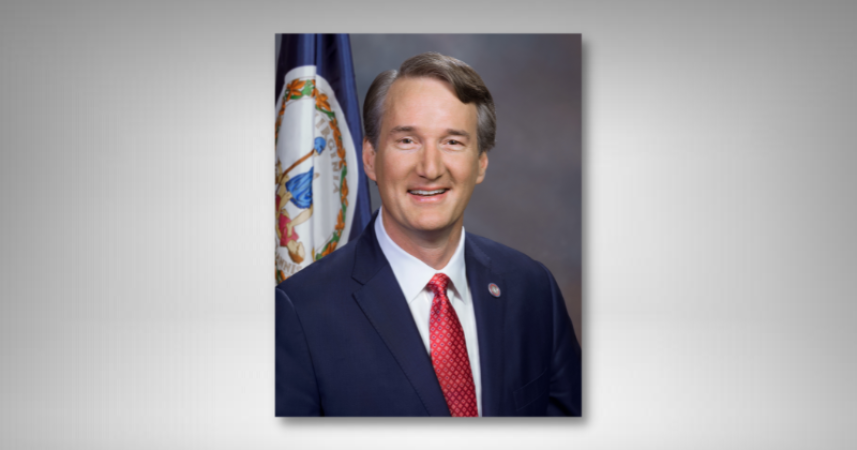In the end, it wasn’t about stopping Glenn Youngkin’s tax cuts.
It was about finding a way to raise taxes.
When Governor Youngkin proposed needed reforms of Virginia’s antiquated tax system by reducing individual tax rates 12 percent, broadening sales tax revenue and increasing a tax credit for low-income earners, General Assembly Democrats went into immediate attack mode.
“An absolutely disgraceful budget proposal for the next two years,” huffed the Virginia Senate Democratic Caucus, calling it “a slap in the face of our most vulnerable individuals.”
“Sales taxes are regressive,” declared Senator Mamie Locke (D-Hampton). “They hit poor people harder.”
House Speaker Don Scott (D-Portsmouth) focused his attention there, too: “By lowering taxes for the wealthiest Virginians and raising local and state sales tax, the burden is shifted onto those least able to afford it.”
It was all a head fake.
Youngkin’s proposal was a reform to diversify the tax base to reflect a changing Virginia economy. It included an income tax reduction for every household paying that tax and further protected low-income wage earners with an earned income tax credit increase. Even with the shift to higher sales taxes, Youngkin’s proposal resulted in a $1 billion overall tax reduction for Virginians.
This was not what House and Senate budget negotiators decided to do once they got behind closed doors. There, negotiators (eight Democrats, four Republicans), operating on the principle that what is the government’s is the government’s and what is yours is negotiable, not only eliminated Youngkin’s $1 billion in tax cuts but added $1.6 billion in tax increases.
To their credit, Senators Ryan McDougle (R-Mechanicsville) and Todd Pillion (R-Abingdon) dissented from what apparently was a pre-ordained committee outcome. Fifty-one Republican members of the House and Senate voted “No” when it hit the floor. To no avail.
As passed, the budget doesn’t just remove Youngkin’s income tax rate reductions while keeping an expanded sales tax on certain digital transactions, it ups the ante. Their budget expands the sales tax to include business-to-business transactions which are typically untaxed because taxing them only results in “pyramiding” — piling on costs at every stage of completing the final consumer product, with those costs passed on to consumers.
By making Virginia one of a handful of states taxing such transactions, the bill creates a disincentive for moving to Virginia … and an incentive to leave. Notes Michael Weigand, Co-Founder of computer security firm Shift5, the new tax “will force small and startup businesses like mine to consider cutting jobs or relocating out-of-state, an option that is easier than ever given the nature of high-tech firms’ remote work policies, and the ease with which cloud capabilities can be moved geographically.”
Not that the General Assembly was warned. No one knew. It was done in secret, developed under cover of darkness, without public vetting, with no consideration of the effects it will have on the Virginia economy and no consultation with those it will affect the most.
As my colleague, Steve Haner, observes: “Tax professionals are still pondering the meaning of several provisions of the final language, some of which appeared for the first time only 48 hours before the vote….An army of stakeholders, lawyers, and lobbyists will spend months fighting over the regulatory guidelines which will provide crucial details … if you are not at the table, you are on the menu.”
And consequences there will be. Haner, again: “The (bill) adds very consequential language about how to tax bundled transactions of both goods and services, paragraphs that appeared in no version during the regular Assembly process …. Both are complicated provisions, substantive changes in tax policy, that were sprung on outsiders as a surprise …. In the 48 hours before the vote, no full analysis emerged. During the brief floor debates, neither issue was a topic.”
So there we have it: A budget sucking an extra $2.6 billion out of Virginia’s economy by increasing regressive sales taxes, with no mitigating reductions for the poor and working class … and not a peep out of the defenders who found Youngkin’s balanced proposal so objectionable.
And, to secure passage, doing it all with no analysis, debate, or a single public hearing.
General Assembly’s Democrats claim to have embedded the taxes in a way making it impossible to tear out the cancer without damaging the body. Veteran Senator Creigh Deeds (D-Bath) reported to his constituents that “The budget includes items the Governor does not support, and some of those may be difficult for the Governor to veto because they are woven into the fabric of the budget itself.”
“Speculation is rampant that he may opt to veto the budget, which would set us up for another prolonged budget debate,” Deeds continued.
Except, of course, there was no debate, and Virginia voters never had an opportunity to weigh in – although they surely can do so with the Governor by emailing glenn.youngkin@governor.
Expect soon to hear a drumbeat of warnings that such a veto would devastate Virginia. The Washington Post has already fired the first volley, comparing a budget veto to federal government shut-downs and quoting Senate Finance Chair L. Louise Lucas: “If he does that, he’s going to have hell to pay with the citizens of Virginia.”
You don’t need to listen hard to hear the steel traps snap shut. As if it were planned.
The General Assembly’s majority seems to be trying to back Youngkin into a corner, offering a Sophie’s Choice between accepting taxes damaging to the economy or spending down political capital in a fight his adversaries have chosen. And then blaming him for any resultant pain.
As a former School Board member who knows what it is like to sit in June wondering what the state transfer will be in order to finish our own budget, I don’t recommend the proposition lightly.
But if that’s the way General Assembly Democrats want to play it, they’ve left little choice: Veto the Budget, Governor. Let’s have the debate progressives shut down.

Chris Braunlich is Senior Advisor and former President of the Thomas Jefferson Institute for Public Policy. He may be reached at chris@thomasjeffersoninst.org.






